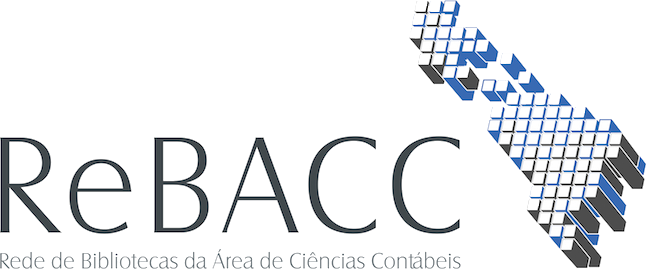Use este identificador para citar ou linkar para este item:
http://rebacc.crcrj.org.br/handle/123456789/6327| Título: | Rates Changes and Earnings Management in the Domestic Energy Suppliers Alterações de Taxas e Gestão de Resultados nos Fornecedores de Energia Doméstica |
| Palavras-chave: | Periodic Tariff Readjustment; Earning management; electric power distributors. Revisão Tarifária Periódica; Gerenciamento de resultados; Distribuidoras de energia elétrica. |
| Editora / Evento / Instituição: | Journal of Accounting, Management and Governance Revista Contabilidade, Gestão e Governança |
| Descrição: | Objective: To verify whether the concessionaires of electric energy adopt earnings management (EM) practices, before and after the Periodic Tariff Review (PTR), in order to obtain better rates and attract investors and/or pay bonuses to their managers.Method: The sample of this study contains all electric power utility companies of B3, covering the period of 2010-2016. We analyzed the impact of PTR using the panel data method.Originality/Relevance: It was analyzed whether the EM is related to PTR, since the interest of the consumer, the government and the investors is different of the concessionary´s interest with respect to the value of the tariff. Notice that investors can make better decisions on how and when to allocate their resources to a specific PTR event.Theoretical/Methodological Contributions: The findings indicate that in the years of tariff review, there is a greater generation of accruals and dimishments 2 years after the PTR. On the other hand, in EM (operational) the cyclical behavior is similar, but the PTR is negative in the year of the tariff review and positive two periods ahead.Social contributions to management: These results are understood as long as the concessionaires know that the result of the year of PTR will not influence the Regulatory Agency in the determination of the present revision and reverse them 2 periods ahead, in order to anticipate for the next PTR. Objetivo: Verificar se as empresas concessionárias de energia elétrica adotam práticas de gerenciamento de resultados (GR), em momentos anteriores e posteriores à Revisão Tarifária Periódica (RTP), a fim de obterem melhores tarifas, atraírem investidores e/ou pagar bonificações aos seus gestores.Método: A amostra de este estudo é composta por todas as empresas concessionárias de energia elétrica da B3, cobrindo o período 2010-2016. Analisamos o impacto da RTP mediante o método de dados em painel.Originalidade/Relevância: Analisou-se se o GR está relacionado à RTP, dado que o interesse do consumidor, do governo e dos investidores é diferente ao das empresas concessionárias no tocante ao valor da tarifa. Veja que os investidores podem tomar melhores decisões em como e quando alocar os seus recursos no evento específico da RTP.Resultados: Notamos que, na média, as empresas gerenciam os seus resultados para cima após a RTP e para baixo nos anos de tarifação.Contribuições Teóricas/Metodológicas: Os achados indicam que nos anos de revisão tarifária existe maior geração de accruals e diminuídos 2 anos após o RTP. Por outro lado, no GR (operacional) o comportamento cíclico é similar, mas a RTP é um fator negativo no ano da revisão tarifária e positivo dois períodos a frente.Contribuições sociais para a gestão: Estes resultados são compreendidos desde que as empresas concessionárias sabem que o resultado do ano da RTP não influenciará a agência reguladora na determinação da revisão presente e os revertem 2 períodos a frente, no intuito de se antecipar para a próxima RTP. |
| URI: | http://rebacc.crcrj.org.br/handle/123456789/6327 |
| Outros identificadores: | https://www.revistacgg.org/contabil/article/view/1885 10.21714/1984-3925_2019v22n3a7 |
| Aparece nas coleções: | Contabilidade, Gestão e Governança - UNB |
Arquivos associados a este item:
Não existem arquivos associados a este item.
Os itens no repositório estão protegidos por copyright, com todos os direitos reservados, salvo quando é indicado o contrário.

